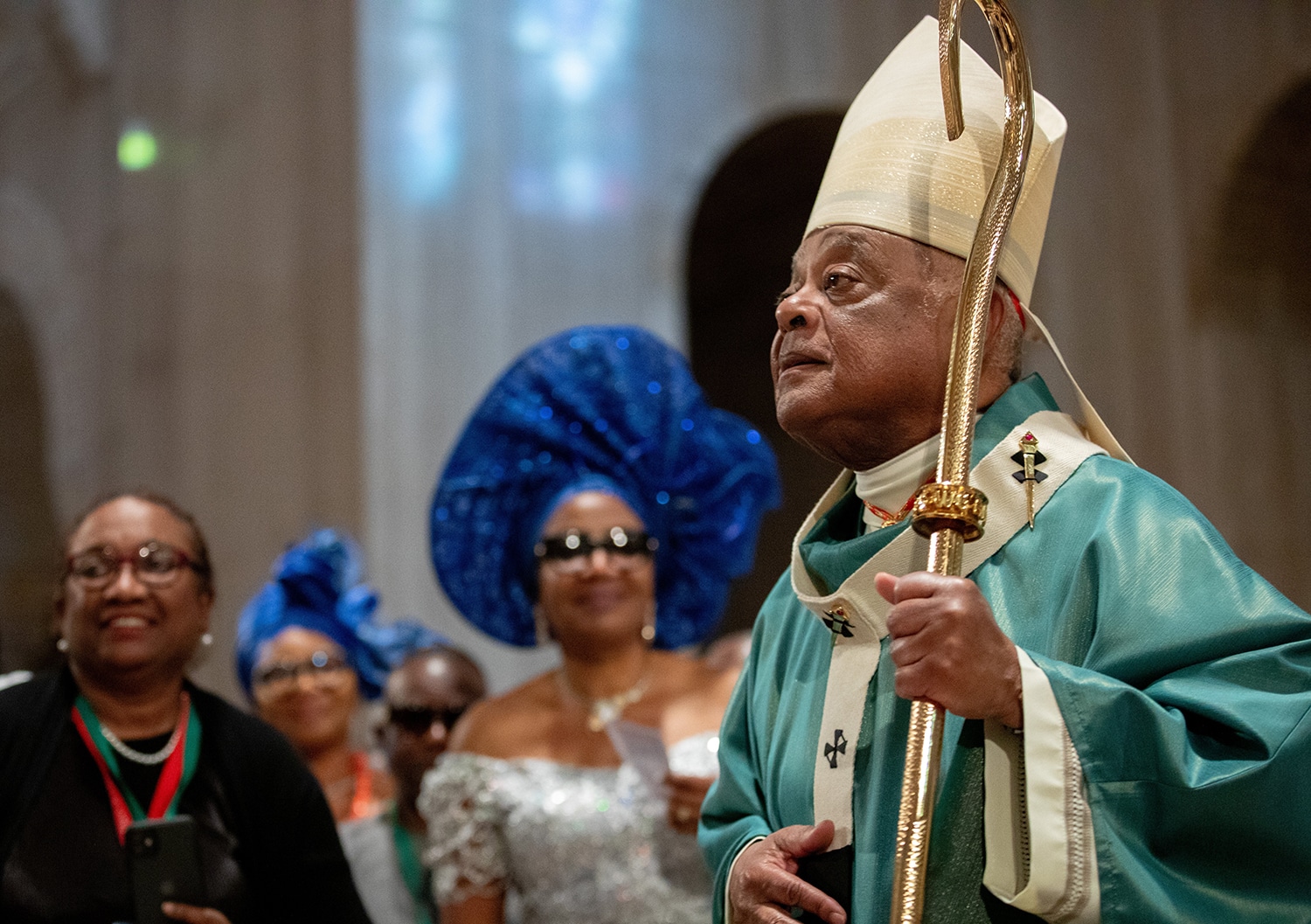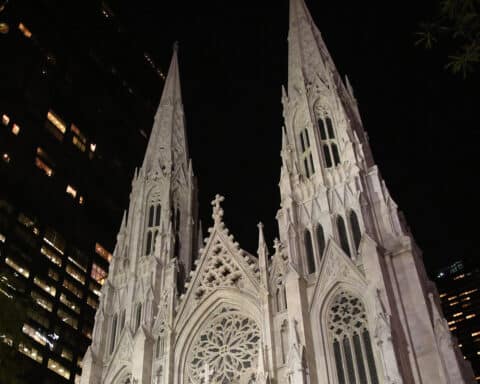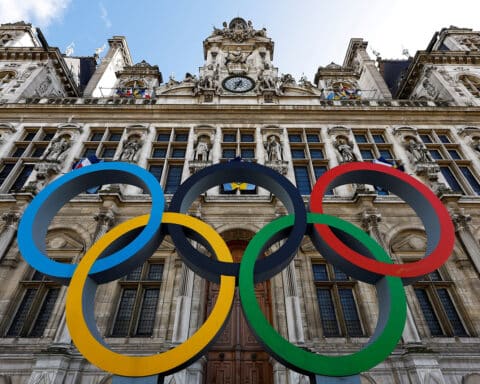WASHINGTON (OSV News) — At a July 22 Unity Mass at the Basilica of the National Shrine of the Immaculate Conception in Washington, Cardinal Wilton D. Gregory urged the fourth African National Eucharistic Congress participants to work for justice, to care for others and to protect the environment.
“You have come … to honor the Eucharistic Lord, which in turn will help you learn how to advocate for those people living on the margins of society more effectively, collaboratively and perhaps even more courageously,” Cardinal Gregory said in his homily at the Mass. “The presence of Christ in the Eucharist today must also include a care and a concern for the natural world that we inhabit.”
Cardinal Gregory, the archbishop of Washington, was principal celebrant of the Mass that was offered as part of the July 21-23 African National Eucharistic Congress held on the campus of The Catholic University of America.
“It is my fondest prayer and hope that you will find new and life-giving ways to invite and to inspire others in your own local communities to hear and to respond to the demands of Gospel justice,” the cardinal said.
About 14 bishops and more than 100 priests concelebrated the two-hour Mass, which was attended by nearly 1,000 people, many of whom wore traditional African garb. The liturgy featured songs and prayers in several languages, including Swahili, Zulu, Igbo, Latin, French, Congolese and Arabic.
Mission of justice
The cardinal welcomed the faithful to Archdiocese of Washington and noted, “This city and archdiocese have a rich legacy of welcoming people from throughout the world, and an important history of social justice as the civil rights movement of the last generation often turned to Washington as the locus of important national decisions.”
In his homily, Cardinal Gregory referenced the readings for the Mass in which Jesus spoke in parables and noted that “the parables of Jesus continue to inspire and to shape us to reverence his enduring presence in the life of the Church.”
“No one who truly listens to the parables of Jesus and then shares in that banquet of life, which is the Eucharist, can fail to take to heart the mission of justice that flows from God’s Word and the sacrificial meal that we share,” he said.
In encouraging the faithful to care for the environment, Cardinal Gregory noted that such a concern “might not have been viewed as vital or a part of the Church’s Eucharistic devotions only a generation ago — yet it has become increasingly important within our own time.”
“The nations of the great lands of Africa hold vast natural riches which must be preserved,” Cardinal Gregory said. “We are summoned to see the environment as a common treasure and a joint inheritance that we must protect for those generations that will follow us.”
He said that in working for social justice and care for the environment, the faithful “are not mere social workers or secular environmentalists, but people of deep faith (who) routinely begin our responsibilities by listening to the words of Scripture and then sharing in the bread of life and the cup of salvation.”
“We go about our service to the poor and the neglected based upon our acceptance of Christ’s commandments, and then we are nurtured by his own body and blood — using those gifts of the earth which have become the sacramental food of everlasting life,” Cardinal Gregory said.
He said the African National Eucharistic Congress is “an important link” to the National Eucharistic Revival, a three-year initiative of the U.S. bishops that began last year to renew understanding and worship of the true presence of Jesus Christ in the Most Blessed Sacrament. The revival includes the 2024 National Eucharistic Congress in Indianapolis.
Eucharistic devotion
Prior to the Mass, Bishop Andrew H. Cozzens of Crookston, Minnesota — the chairman of the United States Conference of Catholic Bishops’ Committee on Evangelization and Catechesis, which is spearheading the National Eucharistic Revival — led a Eucharistic procession. Congress participants carried flags, sang and prayed as they followed the Eucharist from a building on the university campus to the National Shrine.
Before leading the faithful, Bishop Cozzens praised congress participants for their “deep Eucharistic devotion.” He invited them to attend the 2024 National Eucharistic Congress and encouraged them to invite others to attend as well.
“Invite people to encounter Jesus in the Eucharist,” the bishop said, “because when they encounter Jesus in the Eucharist, they will be healed, they will be formed, they will be unified.”
Noting that many people carry pain in their hearts, Bishop Cozzens stressed that “Jesus has a human heart and he knows that pain.”
“The Eucharist is the place where we come with all our needs and burdens,” he said. “The Eucharist is Jesus’ self-emptying love poured out for you.”
Richard Szczepanowski is managing editor of the Catholic Standard, newspaper of the Archdiocese of Washington.





